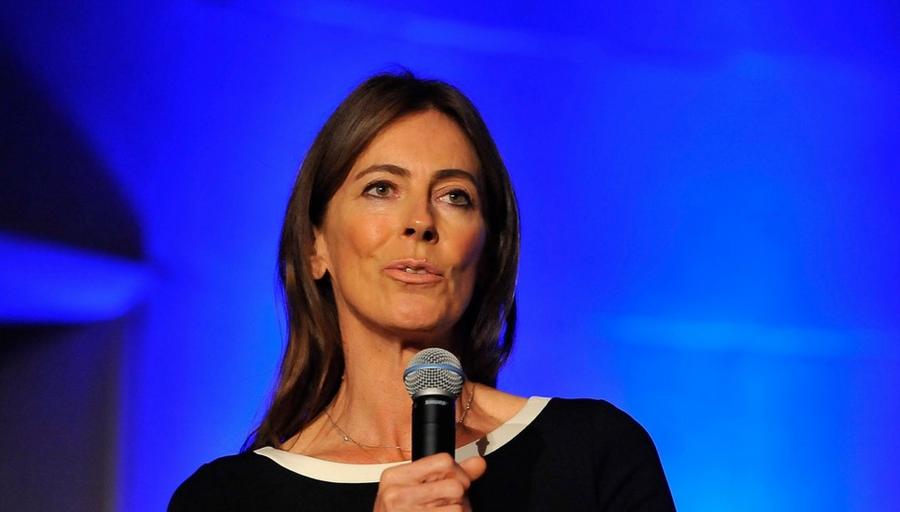Kathryn Bigelow at a Glance
- Categories: Celebrities, Celebrities > Directors
- Net Worth: $50 Million
- Birthdate: Nov 27, 1951 (72 years old)
- Birthplace: San Carlos
- Gender: Female
- Profession: Film director, Screenwriter, Film Producer, Actor, Television Director
- Nationality: United States of America
- Height: 5 ft 11 in (1.816 m)
Kathryn Bigelow: A Look at Her Net Worth, Career, and Impact on Cinema
Kathryn Bigelow is a highly respected American film director and producer, renowned for her groundbreaking work in action and suspense genres. She has made history as the first woman to win the Directors Guild of America Award for Best Director and the Academy Award for Best Director. This article delves into Kathryn Bigelow’s net worth, her journey in the film industry, her distinctive filmmaking style, and her impact on cinematic storytelling.
Early Life and Education
Kathryn Ann Bigelow was born on November 27, 1951, in San Carlos, California. Her upbringing was marked by the support of her parents: Ronald, a paint factory manager, and Gertrude, a librarian. As an only child, she developed a keen interest in the arts from an early age. She attended Sunny Hills High School in Fullerton, California, before pursuing her passion for painting at the San Francisco Art Institute. She earned her Bachelor of Arts degree in 1972. Her artistic pursuits continued when she was accepted into an independent study program at the Whitney Museum of American Art in New York City. There, she immersed herself in a bohemian lifestyle, residing in the loft of performance artist Vito Acconci. Bigelow’s diverse interests also led her into real estate, where she collaborated with musician Philip Glass, renovating and selling old apartments. She then enrolled in a graduate film program at Columbia University, focusing on film theory and criticism. Later, she also shared her knowledge by teaching at the California Institute of the Arts.
Career Beginnings in Film
Bigelow’s foray into filmmaking began during her studies at Columbia University. In 1978, she directed a short film titled “The Set-Up,” which served as her Master of Fine Arts thesis. This early work provided a foundation for her unique approach to storytelling. Her debut full-length feature film, “The Loveless” (1981), showcased her distinctive directorial style. The film, an outlaw biker drama, gave actor Willem Dafoe his first starring role. Bigelow’s early works set the stage for her future explorations of genre conventions and complex themes.
Breakthrough and Acclaim
Bigelow’s career took a significant turn with the neo-Western horror film “Near Dark” (1987). The film, which starred Adrian Pasdar, Jenny Wright, Bill Paxton, and Lance Henriksen, explores the life of a young man drawn into a family of nomadic vampires. While initially a commercial disappointment, “Near Dark” garnered a cult following over time. Bigelow continued to challenge Hollywood norms with a series of action films that tackled racial and gender politics. “Blue Steel” (1990), starring Jamie Lee Curtis, presented a rookie police officer entangled with a serial killer. “Point Break” (1991), featuring Patrick Swayze, Keanu Reeves, Gary Busey, and Lori Petty, explored the world of surfing and bank robbery. The dystopian science-fiction thriller “Strange Days” (1995), with Ralph Fiennes, Angela Bassett, and Juliette Lewis, delved into themes of racism, media voyeurism, sexual abuse, and technological overreach, and despite its box-office failure, was praised for its complex exploration of societal issues.

Getty
After a hiatus, Bigelow returned with “The Weight of Water” (2000), an adaptation of Anita Shreve’s novel, and the submarine film “K-19: The Widowmaker” (2002), starring Harrison Ford and Liam Neeson. In 2008, her Iraq War thriller “The Hurt Locker” premiered, earning critical acclaim and six Academy Awards, including Best Picture and Best Director, making Bigelow the first woman to win the latter. “Zero Dark Thirty” (2012), about the hunt for Osama bin Laden, garnered further critical success and five Academy Award nominations. The historical crime drama “Detroit” (2017), depicted the 1967 riots and further cemented her reputation for tackling complex subjects.
Distinctive Filmmaking Style and Themes
Bigelow’s work stands out for its unique blend of mainstream filmmaking techniques and innovative storytelling. She is known for her use of handheld cameras, which creates a sense of immediacy and realism, and for her focus on themes such as violence, gender, race, and the exploration of human behavior under pressure. Her films, often featuring graphic representations of violence, provoke thought about how violence is sensationalized and normalized within society. Bigelow’s filmography reflects her ability to challenge conventions and delve into complex social issues. She is not afraid to depict the harsh realities of the world, and she does so with a keen eye for detail and a commitment to authenticity.
Personal Life and Real Estate
In 1989, Kathryn Bigelow married filmmaker James Cameron. The couple divorced in 1991, but they continued to collaborate professionally, with Cameron contributing to “Strange Days.” In 2009, Bigelow competed against Cameron in the Best Director category at the Oscars, where he was nominated for “Avatar.” Bigelow’s real estate investments have been notable. She and James Cameron purchased a home in Beverly Hills for $1.8 million in 1989, which she listed for $13 million in 2018. In 2016, she acquired a 72-acre horse ranch in upstate New York for $2.6 million.
Kathryn Bigelow’s Net Worth Summary
Kathryn Bigelow’s estimated net worth is $50 million. Her wealth is a testament to her successful career as a director and producer in the film industry. Her financial success reflects her ability to create critically acclaimed and commercially successful films that have resonated with audiences and critics alike.

